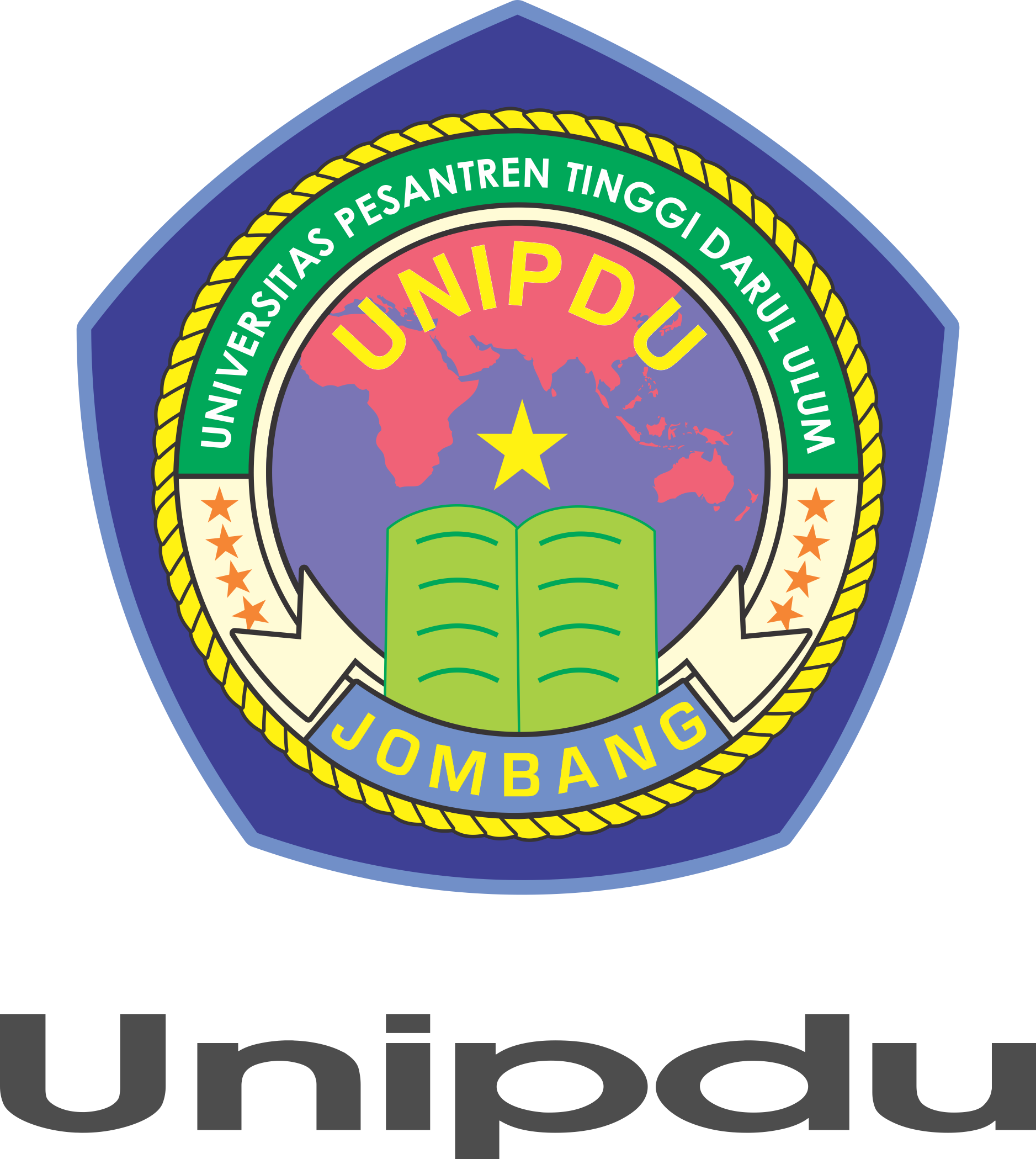Persepsi Mahasiswa terhadap 4K dalam Pembelajaran Matematika
DOI:
https://doi.org/10.26594/jmpm.v4i1.1541Keywords:
perception, 4C, learning, mathematicsAbstract
Penelitian ini dilakukan untuk mengetahui persepsi mahasiswa tentang pentingnya 4K (Kritis, Kreatif, Komunikatif, dan Kolaboratif) dalam pembelajaran matematika. Pendekatan penelitian ini adalah penelitian kuantitatif dan kualitatif. Berdasarkan hasil penelitian diperoleh informasi bahwa sebagian besar responden memilih tanggapan setuju dengan persentase rata-rata 57% untuk komponen kritis, sebagian besar responden memilih tanggapan setuju dengan persentase rata-rata 59% untuk komponen kreatif, sebagian besar responden memilih tanggapan setuju dengan persentase rata-rata 51% untuk komponen komunikatif, dan responden memilih tanggapan setuju dengan persentase rata-rata 49% serta tanggapan sangat setuju dengan persentase rata-rata 49% untuk komponen kolaboratif. Dengan demikian, sebagian besar mahasiswa merasa bahwa 4K penting dalam pembelajaran matematika. Berdasarkan hasil penelitian, para pengajar matematika disarankan untuk menerapkan pembelajaran berbasis 4K.
References
Apriono, D. (2013). Pembelajaran Kolaboratif: Suatu Landasan untuk Membangun Kebersamaan dan Keterampilan Kerjasama. Diklus.
Astuti, A., & Leonard, L. (2015). Peran Kemampuan Komunikasi Matematika Terhadap Prestasi Belajar Matematika Siswa. Formatif: Jurnal Ilmiah Pendidikan MIPA. https://doi.org/10.30998/formatif.v2i2.91
Bimo, W. (2010). Pengantar Psikologi Umum. Yogyakarta: CV Andi Offset.
Bowell, T. & Kemp, G. (2005). Critical Thinking: A Concise Guide. New York: Routledge.
Firdaus, F., Kailani, I., Bakar, M. N. Bin, & Bakry, B. (2015). Developing Critical Thinking Skills of Students in Mathematics Learning. Journal of Education and Learning (EduLearn). https://doi.org/10.11591/edulearn.v9i3.1830
Gregoire, J. (2016). Understanding Creativity in Mathematic for Improving Mathematica Education. Journal of Cognitive Education and Psychology, 15(1), 24–36.
Iriawan, S. B. (2017). Mewujudkan Indonesia Emas Tahun 2045 Melalui Pendidikan Kecakapan Abad Ke-21. Retrieved from http://pgsd.upi.edu/sandi-mewujudkan-generasi-emas-2045-melalui-pendidikan-kecakapan-abad-ke-21/
Laal, M., & Ghodsi, S. M. (2012). Benefits of collaborative learning. In Procedia - Social and Behavioral Sciences. https://doi.org/10.1016/j.sbspro.2011.12.091
Lau, J. Y. F. (2011). An Introduction to Critical Thinking and Creativity: Think More, Think Better. An Introduction to Critical Thinking and Creativity: Think More, Think Better. https://doi.org/10.1002/9781118033449
Maharani, H. R. (2014). Creative Thinking in Mathematics: Are We Able To Solve Mathematical Problems in a Variety of Way? International Conference on Mathematics, Science, and Education.
Mahmudi, A. (2006). Pembelajaran Kolaboratif. Seminar Nasional MIPA 2006.
Mahmudi, A. (2009). Komunikasi dalam Pembelajaran Matematika. Jurnal Mipmipa Unhalu, 8(1).
Mirza, Munawar S. & Iqbal, M. Z. (2014). Impact of Collaborative Teaching (CT) on Mathematics Students’ Achievement in Pakistan. Journal of Research and Reflections in Education, 8(1), 13–21.
Nadjafikhah, M., & Yaftian, N. (2013). The Frontage of Creativity and Mathematical Creativity. Procedia - Social and Behavioral Sciences. https://doi.org/10.1016/j.sbspro.2013.07.101
National Council Of Teachers Of Mathematics. (2000). Principles and Standards for School Mathematics. School Science and Mathematics. https://doi.org/10.1111/j.1949-8594.2001.tb17957.x
Partnership for 21st Century Learning. (2015). P21 Framework Definitions. Partnership for 21st Century Learning. Retrieved from http://www.p21.org/storage/documents/docs/P21_Framework_Definitions_New_Logo_2015.pdf
Pope, R. (2005). Creativity: Theory, history, practice. Creativity: Theory, History, Practice. https://doi.org/10.4324/9780203695319
Qohar, A. (2011). Mathematical Communication: What and How to Develop It In Mathematics Learning? International Seminar and the Fourth National Conference on Mathematics Education 2011 “Building the Nation Character through Humanistic Mathematics Education.”
Remache, A. (2016). Developing Students’ Comunicative Competence in University English Language Programs. International Journal of Arts and Science, 9(1), 183–188.
Riduwan. (2005). Belajar Mudah Penelitian Untuk Guru, Karyawan dan Peneliti Pemula. Bandung: Alfabeta.
Sabandar, J. (2007). Berpikir Reflektif. In Seminar Nasional Sehari: Permasalahan Matematika dan Pendidikan Matematika Terkini.
Sherafat, R. (2015). Critical Thinking, Reasoning, and Logical Concluding’ Abilities in relation to Academic Achievement among Indian Adolescent Students. The International Journal of Indian Psychology, 3(1), 145–155.
Soeyono, Y. (2013). Mengasah Kemampuan Berpikir Kritis dan Kreatif Siswa Melalui Bahan Ajar Matematika dengan Pendekatan Open-Ended. In Seminar Nasional Matematika dan Pendidikan Matematika FMIPA UNY.
Sugiyarti, L., & Arif, A. (2018). PEMBELAJARAN ABAD 21 DI SD. Prosiding Seminar Dan Diskusi Nasional Pendidikan Dasar 2018.
Sulistiani, E., & Masrukan. (2016). Pentingnya Berpikir Kritis dalam Pembelajaran Matematika untuk Menghadapi Tantangan MEA. Seminar Nasional Matematika X Universitas Negeri Semarang 2016.
Sumarna, N., Wahyudin, & Herman, T. (2017). The Increase of Critical Thinking Skills through Mathematical Investigation Approach. In Journal of Physics: Conference Series. https://doi.org/10.1088/1742-6596/812/1/012067
Vale, I., & Barbosa, A. (2017). The Importance of Seeing in Mathematics Communication. Journal of the European Teacher Education Network.
Van Roekel, D. (2014). Preparing 21st Century Students for a Global Society: An Educator ’ s Guide to the “ Four Cs .” National Education Association.
Yuniar, Siti Nastiti; Sunardi; Kurniawati, D. (2017). Pengembangan Indikator 4C’s yang Selaras dengan Kurikulum 2013 SMA Kelas X Pada Materi Trigonometri. Kadikma, 8(3), 173–185.
Zubaidah, S. (2010). Pembelajaran Kolaboratif dan Group Investigation (Sebagai Salah Satu Teknik Pembelajaran Kolaboratif). In Seminar Nasional Pembelajaran Biologi dengan Tema “Pengembangan Kemampuan Profesionalisme Guru melalui Pembelajaran Inovatif. Riau: Universitas Islam Riau.Downloads
Published
Issue
Section
License
Copyright (c) 2019 Yunis Sulistyorini, Siti Napfiah

This work is licensed under a Creative Commons Attribution 4.0 International License.
The formal legal aspect of access to any information and articles contained in this journal website refers to the Creative Commons Attribution 4.0 International (CC BY 4.0) license terms.













